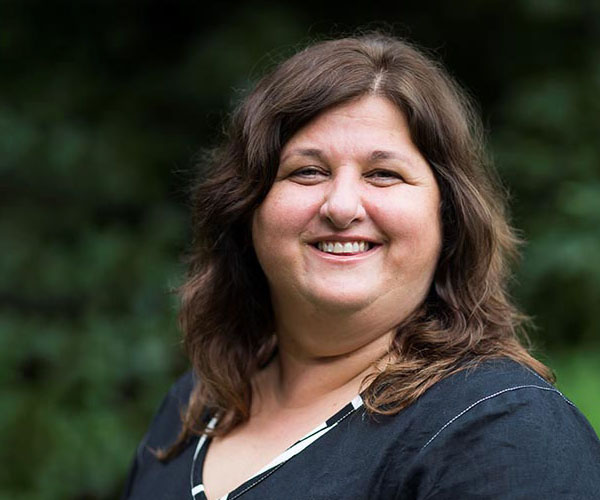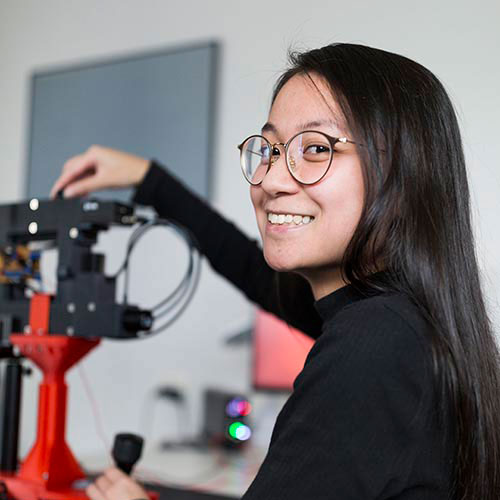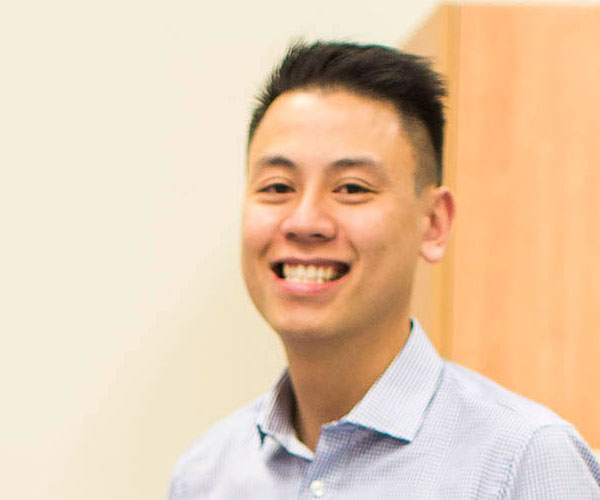News
Celebrating orthoptists in vision research
As we celebrate World Orthoptic Day, a few of our dedicated orthoptists share the passion that drives their work.
At CERA, orthoptists play an important role in our world-leading vision research and caring for our clinical trial participants.
Orthoptists are eye health professionals who specialise in the assessment, diagnosis and non-surgical management of eye disorders.
CERA is proud to have over 13 passionate and experienced orthoptists as part of our team, working in a range of areas including research, governance and clinical trial coordination and management.
As we get ready to celebrate World Orthoptic Day on June 1, 2020, a few of our orthoptists give us a glimpse into a day in their working lives, and what they love about their jobs.

Pyrawy Sivarajah, orthoptist and Clinical Trial Coordinator at CERA.
Pyrawy Sivarajah
Clinical Trial Coordinator, Macular Research
What do you do at CERA?
Currently I’m a Clinical Trial Coordinator and orthoptist in the Macular Research Unit, working with a team of orthoptists, optometrists, nurses and ophthalmologists on finding a cure and treatment for age-related macular degeneration (AMD).
The role involves consulting with patients and the use of my orthoptic skills to perform clinical assessments of their eyes through various stages of the studies I work on.
What’s the best thing about your job?
As cliché as this sounds, I love doing what I do. I enjoy the technical aspects of the role as well as the personal side where I get to meet new people, hear their stories, and build relationships with them during their assessment and treatment.
I also enjoy knowing that the efforts our team puts in has a direct correlation with finding a cure for AMD.
What made you want to become an orthoptist?
I have always had an avid interest in the healthcare sector, in particular eye health. Eye related problems can greatly impact a person’s quality of life and I wanted to be able to be part of a workforce that helps make a change in someone’s quality of life whilst helping with their vision.
What does World Orthoptic Day mean to you?
World Orthoptic Day is about celebrating and recognising all the orthoptists that have made positive contributions to the world. It is also about creating awareness and promoting a diverse and fulfilling career.

Maria Kolic, orthoptist and Clinical Trial Coordinator at CERA.
Maria Kolic
Clinical Trial Coordinator, Bionic Eye Project
What do you do at CERA?
I am the Clinical Trial Coordinator for the Bionic Eye team, working mainly with participants who have low vision, light perception. My grassroots orthoptic skills enable keen observation of participants with low vision and how they navigate familiar and unfamiliar environments.
Ocular motility assessments, a foundation of orthoptics, do feature in the Bionic Eye Project, as people with low vision often will have a form of nystagmus.
What’s the best thing about your job?
Bringing a team together with specialised research and clinical skills to execute the initial aims of the Bionic Eye project, and simultaneously advocating for the participants, so they may get the most out of participating.
It’s very rewarding to be a part of a collaborative and knowledgeable team, with the research participant at the core centre of the study. Without participants we are unable to investigate any hypothesis.
What made you want to become an orthoptist?
The study of optics and light, and my interest in psychosocial behaviours, led me to explore orthoptics. I had always thought I would work in low vision services as an orthoptist, however it’s pretty exciting being at the forefront of discovering new information (research). I have been working in research environments since 2006.
What does World Orthoptic Day mean to you?
It’s important to have awareness and recognition for our profession, as there can be a tendency to confuse the orthoptic profession with optometrists and/or orthotists.
Orthoptists work hard at getting the best possible outcome for the patient or research participant they engage, and always go above and beyond to educate, support and guide patients in managing their eye disease or condition.

Darvy Dang, orthoptist and Clinical Trial Coordinator at CERA.
Darvy Dang
Clinical Trial Coordinator, Ophthalmic Neuroscience
What do you do at CERA?
I am a Clinical Trial Coordinator and orthoptist as part of the Ophthalmic Neuroscience Unit at CERA. Part of my role includes clinical testing and retinal imaging of research participants, using highly specialised technology to assess, detect and monitor a variety of eye diseases.
The information we gather helps us to conduct translational research that has real-life impact.
What’s the best thing about your job?
I absolutely love my job and everything it has to offer! Orthoptics is a versatile field with many opportunities and diverse career options. I feel I am receiving the best of both worlds by combining research and clinical care – there is never a dull day when you are working in clinical research.
However, not only is it a fulfilling career, it is also a challenging one. Nevertheless, I am very fortunate to be supported by an amazing team and community that continually inspires and encourages me to grow.
What made you want to become an orthoptist?
Orthoptists play a critical role in promoting improved quality of life in people with vision problems. However, being an orthoptist is more than just providing eye care. Being an orthoptist requires good critical thinking skills and a genuine sense of scientific curiosity. Despite being one of the smallest organs in our body, our eyes are one of the most complex and intricate structures we have.
What does World Orthoptic Day mean to you?
World Orthoptic Day is an opportunity to recognise the work that orthoptists do for their patients and the ophthalmic community – whether you are working in research, education, private or public settings. Being an orthoptist means working together with a variety of other health professionals as a team and recognising each other’s contributions and efforts.

Thuy Chau, orthoptist and Senior Study Coordinator at CERA.
Thuy Chau
Senior Study Coordinator, Clinical Trials Research Centre
What do you do at CERA?
I’m a Senior Study Coordinator and orthoptist at the Clinical Trials Research Centre at CERA. I manage and coordinate multiple research studies for a wide range of eye diseases, providing new drug treatments to patients.
Being an orthoptist allows me to continue seeing patients and testing them in a more research-driven manner, but also have a better understanding of the research being conducted and how it may affect and benefit their eye condition.
What’s the best thing about your job?
Seeing how all the research projects being conducted within CERA have an impact on eye health, and our way of thinking about the eye condition and how we best treat it.
What made you want to become an orthoptist?
Having had worn glasses for most of my life, I’ve always been interested in eyes and how they work! I always knew I wanted to do something that allowed me to work with patients and I felt that the orthoptics would be the best choice.
The orthoptic profession is so diverse and has continually expanded over my time as an orthoptist where we can be involved in so many areas of the eye and providing different types of care to our patients.
What does World Orthoptic Day mean to you?
It’s a day for us to acknowledge all orthoptists in our profession and the important work and involvement we have in our field.
